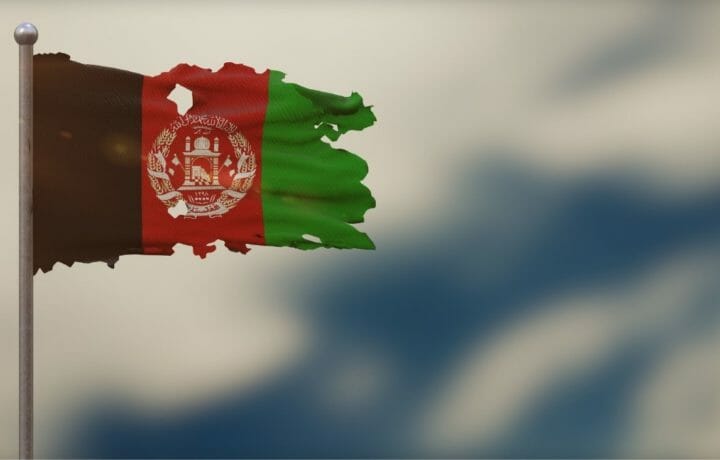“Withdrawing from Afghanistan was a major strategic blunder” -Michael G. Vickers, 30-year veteran of Afghanistan operations/policy
Those who invested most of their adult life on Afghanistan will gain much By All Means Available: Memoirs of a Life in Intelligence, Special Operations, and Strategy. The book was written by Michael G. Vickers, who spearheaded the effort to drive the Soviets from Afghanistan, and then changes in SOF and Intel policy towards Afghanistan from 2007-2014. While this memoir covers his early years as a Special Forces leader and CIA officer, the global fight against AQ and affiliates, what he terms the new cold war, and his strategic lessons—the bulk of this book is focused on Afghanistan.
Not many people have been able to look at the operations in Afghanistan from as many viewpoints as Michael Vickers. Most might know his early life from what was portrayed in the film/book Charlie Wilson’s War. But getting to see how he envisioned the strategic and policy changes in the 1980s reveals many lessons. Unfortunately, many of those lessons he recounts from the 1980s and early 90s have been ignored over the last few years, as we repeated them in Afghanistan at the end.
The first and most vital lesson was that the same strategy he used against the Soviet Army was simply copied by the Pakistan Army and used against the NATO coalition to drive them from Afghanistan. For those who recognized this early-on in the post-September 11 war in Afghanistan, this book is a laundry list of the ways that Pakistan used, misused, deceived, and took advantage of the endless trust that the U.S. put into the Pakistani security forces since the early 1980s. As Vickers points out many times, there was no way for the U.S.-led coalition and the Afghan government to defeat the PakISI proxy forces that were pretending to be an internal insurgent force. As long as the Pakistani support, sanctuaries, training and arming of the Taliban and Haqqani network continued, the U.S. could never withdraw its military and expect the Afghans to hold off their enemies alone.
Like the Soviets, the United States never applied all means available to them to stop Pakistan from supporting the forces trying to destabilize the Afghan government. At one point in the book, around 2010-11, Vickers notes that the U.S. had tried everything they could to persuade Pakistan to change their minds and stop their unconventional war on the Afghans and NATO.
The first question, that might strike a reader about this statement is that it seems like the U.S. did not use its massive economic leverage, or abundant diplomatic capabilities to help Pakistan end their cold war with India. The U.S. had not used all available means to stop the Pakistanis from using terrorists to murder Americans and their Afghan and NATO allies.
The second larger question for readers about the White House’s view that they could not get Pakistan to change their strategy might be—why continue the war at all? If the war was going to end in failure with the Taliban, Haqqanis, and AQ back in Afghanistan, unless Pakistan stopped their war on NATO—then why keep sending U.S. servicemembers and billions of dollars into Afghanistan? This is a topic that Vickers does not explore. If we knew in 2011 that there was no way to win, why not be honest with America about the paradox and offer two options. Option 1. Stay in Afghanistan for decades with a small footprint like in Colombia or South Korea. Option 2. Remove all forces now and try to conduct counterterrorism operations on AQ from afar.
Vickers sums up the paradox of the war in Afghanistan for the NATO coalition and the ANDSF quite well at the end of the Afghanistan war chapters. “We couldn’t win with 150,000 U.S. and Coalition troops in country, we couldn’t lose with only seven to eight thousand as long as we had the escalation dominance that U.S. airpower provided.”
He rightly blames the roots of the U.S. defeat in Afghanistan on the poor diplomatic efforts of Khalilzad, as well as, the heavy push from American leaders to get our forces out of every foreign country at all costs. He also correctly blames the final decision to lose the war on the way the Afghanistan exit was handled. Vickers correctly notes the Taliban did not live up to the Doha Agreement of 2020, and the U.S. had every right to nullify the deal and put a few thousand more SOF on the ground with a sufficient assortment of airpower. This was all that was needed to stop Pakistan from lifting all the restrictions off the Taliban and Haqqani terrorists, who mostly bought not fought their way to Kabul.
One of the critical outcomes of the U.S. defeat in Afghanistan that Vickers explains is the morale boost that the violent Islamist terrorists around the world feel right now. This has been evident in many spots and most notably in the Hamas terror attacks on Israel. Vickers also points out the that the U.S. counterterrorism policymakers have not used “all means available” to counter the core ideology of the Islamist terrorist networks. As long as the ideology is attractive to young men and women, there will be no end to the recruiting, inspiring, and training of terrorists across the globe.
Vickers has penned a solid book full of key decision points and strategic lessons that should be studied by national security practitioners. He also fairly discusses the members of his teams, and many colleagues and mentors throughout this book, providing historians with a better understanding of the people behind many key national security decisions of the last few decades.




